Nicolina & Matthew

Things To Do
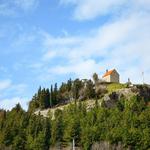
Sinj
Small and quaint, Sinj is a sleepy town known for the Sinjska Alka (Croatian knight's tournament) in August. While there isn't much to do in the town itself, those staying for a long weekend can make use of its equidistance to Krka National Park, Split, Omiš and Makarska.
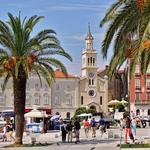
Split
A city that needs no introduction, Split is Croatia's second-largest city and traveled to because of its mix of historic architecture and modern party scene. The city has seen a rise in popularity as a summer-time party city, but don't let that deter you from chasing gems like witnessing a Klapa performance in the old town, getting lost in its winding streets and enjoying its abundance of restaurants serving local cuisine.
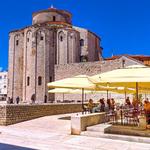
Zadar
As Split's smaller cousin, Zadar can be considered more intimate but also just as accessible for island hopping (e.g. Kornati, Cres and Lošinj) and sight-seeing. Known for its city wall, sunsets and organs played by the sea itself, there are quite a number of restaurants, market stalls and historic attractions within the old town. A convenient location to stay on the way further north to Istria.
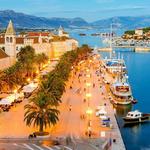
Trogir Old Town
As a UNESCO world heritage site, Trogir is quaint but beautifully preserved in time. Our recommendation is to arrive well before the dinner rush to find parking spaces right next to the old town (be warned: expensive!). Consider eating earlier and having a sunset walk followed by drinks along the promenade. For a more wallet-friendly visit, find a parking spot much further away from the old town and walk there.
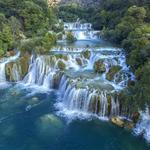
Krka National Park
A stunning national park to get a taste of inland Croatia and its diverse beauty. While not a challenging walk (especially for those used to Swiss mountain hikes), it's highly rewarding to see the interesting ecosystem and walk along the constructed wooden paths. The main walking area is accessible by foot or bus only, though there are a decent number of parking spaces at the main entrance. If you're on a budget, we recommend bringing your own lunch. And for those with more time to spare in the area, the park is also accessible via a river cruise if you book ahead.
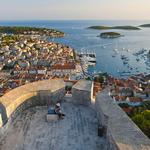
Hvar
If you're interested in a carefree holiday with a fantastic mix of chilling on the beach and evening strolls to get dinner by the sea, look no further than Croatian islands like Hvar. Accessible from Split by ferry, this island also has historic sites to mix things up during a longer stay. We can't vouch for how the island looks now, but Nina remembers looking up at the Milky Way and being surrounded by wild rosemary and lavender on her 14th birthday.
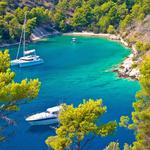
Brač
Since Hvar nowadays has the reputation of being a "luxury" party destination, you can consider Brač to be a less crowded, family-friendly alternative. With beaches like Zlatni Rat, Brač is more suited for nature lovers and water sport enthusiasts. Its proximity to Split also makes it an ideal location for travelers with a tight time-frame, but are still looking to have a Croatian island experience.
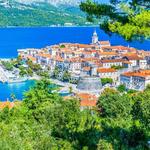
Korčula
Korčula is often called "little Dubrovnik" given its well-preserved medieval old town. Calm, cultural and scenic, the island has invested a lot into preserving its heritage and natural beauty. Marco Polo was supposedly born on this island, adding to its historic charm. For wine lovers, this island is the heart of Pošip wine production.
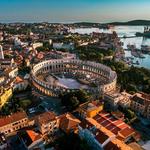
Istria
Considered more "wild" than the Dalmatian coast, tourists that visit Istria tend to keep coming back for holidays every year, with good reason. From the famous Rovinj to less-traveled but stunning hilltop towns like Motovun, Istria is full of sparkling beaches, unique history (like an intact Roman colosseum) and fantastic agrotourism. Islands accessible from Zadar (e.g. Cres) are also accessible from Istria, offering an alternative to driving up the coast. Only recommended for guests staying more than one week, given its distance away.
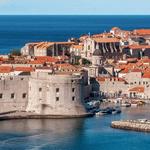
Dubrovnik
Last but not least, King's Landing- or actually, Dubrovnik. While already immensely popular beforehand, Dubrovnik skyrocketed in popularity after its appearance in the TV show Game of Thrones. The ancient and impenetrable city is worth much more than that though, with unique architecture and history that's difficult to match anywhere else. Crowds will be present no matter what time of year, and it's a decent 3 hrs drive from Split if the traffic's clear, but the city also has a reasonably sized airport for those considering flying back from a different city.